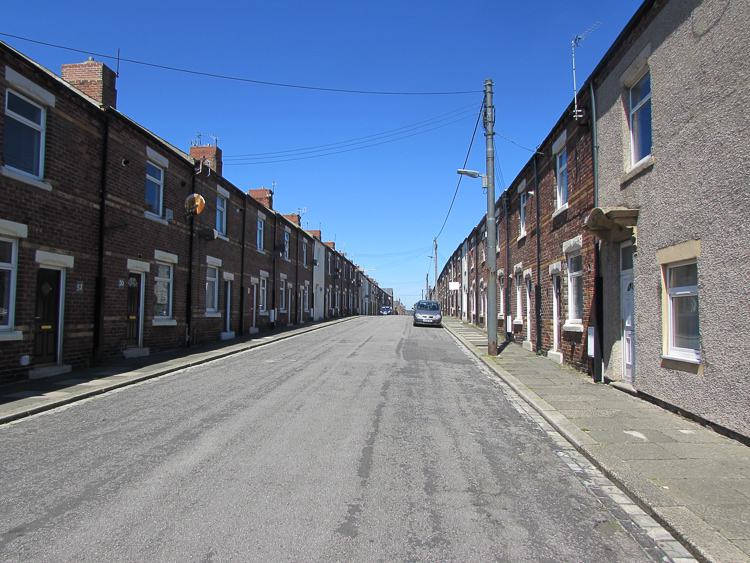As in-work poverty grows faster than employment, how does it affect the potential of the next generation, and will society suffer if some people can’t fully participate in it?
It’s lunchtime on Seventh Street in Horden, East Durham. Pavements stand empty as the weary terraced houses provide a backdrop of boarded up windows and old red brick. On the corner, the door of one house is open and from inside comes the sound of laughter.
The flurry of activity in the Hub House community centre is testament to the popularity of their staff, the advice they offer, and the deeply entrenched poverty in one of the most deprived areas of the UK.
In the back garden, a man is drying the tears from his cheeks. Frank has watched his local area suffer ever since the closure of the coal pits three decades ago.
“It’s going to get a lot worse the way the government’s going on now,” he says. “There’ll be riots again like they had down in Tottenham. Everyone will be smashing in shops, pinching tele’s, if there’s not enough police there’ll be hell on with people getting murdered and that.
“People will just go along with it, thousands, everybody is just pissed off having nothing.”
The boarded-up houses on the numbered streets of Horden are a particularly striking example of endemic destitution, but the social issues that affect this community are symptomatic of the burgeoning epidemic of poverty impacting people across the UK.
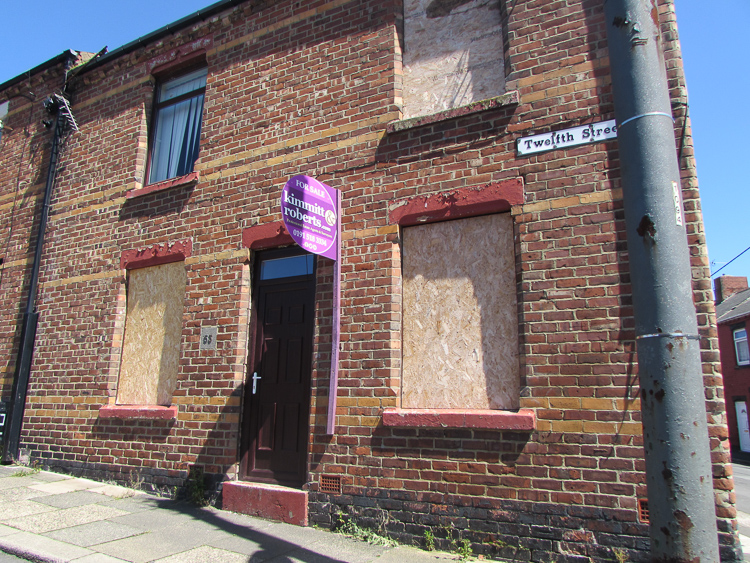
The small terraced Hub House is a care facility on the front-line helping with social isolation, hunger, debt, problems with benefits and other concerns that reflect the hardship of the area.
When the UK colliery industry was shut down, it destroyed the majority of employment opportunities in areas such as East Durham. However, it is the government policies of the last ten years that have compounded poverty for people in the former mining villages.
Austerity measures enacted in 2010 left the seven councils in the North East of England with half a billion pounds less to spend each year. County Durham was among the worst affected areas in the country with its funding cut by 31% between 2010 and 2017, according to research from Cambridge University.
Universal credit has also disproportionately blighted the area. A study this year in the British Medical Journal stated that “rather than providing a safety net, universal credit is undermining basic rights to a decent standard of living, housing and health at a time of stringent cuts to public services.”
The authors found that there was an “uneven impact of welfare reform in the UK” and that there were “financial losses higher in older industrial areas such as North East England.”
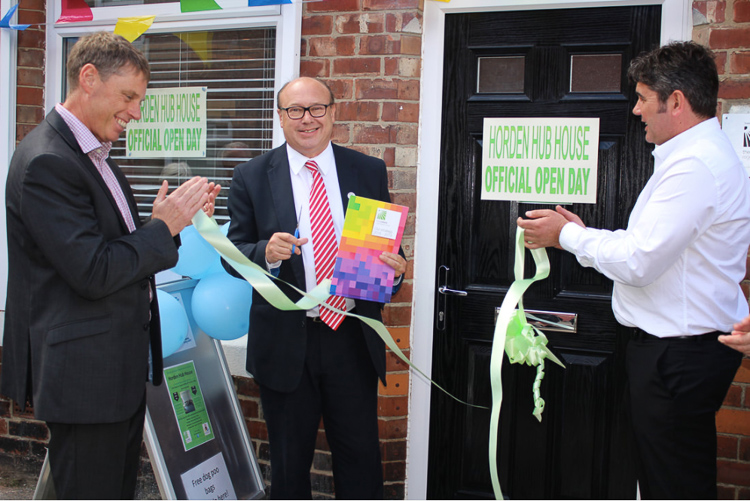
In Horden, Frank sees the reality of universal credit on a daily basis and has experienced the ruthless nature of the system having been sanctioned for turning down a job opportunity he couldn’t afford to travel to.
“In the street where I live, everybody is more or less in the same boat on universal credit,” he says. “My benefits have gone from £207 a month down to £114. If it wasn’t for these (the Hub House) I don’t know what I’d do.
“I come here, and I can get a food parcel. It was embarrassing at first because I hadn’t had one before, but now I don’t mind coming up here because they help you out.
“That’s the situation, you just can’t live on this. It really gets me down.”
As he thinks of the next generation, Frank worries for his own children. “I feel sorry for my daughter, the youngest, she’s only eighteen,” he says. “She’s got all this to come.”
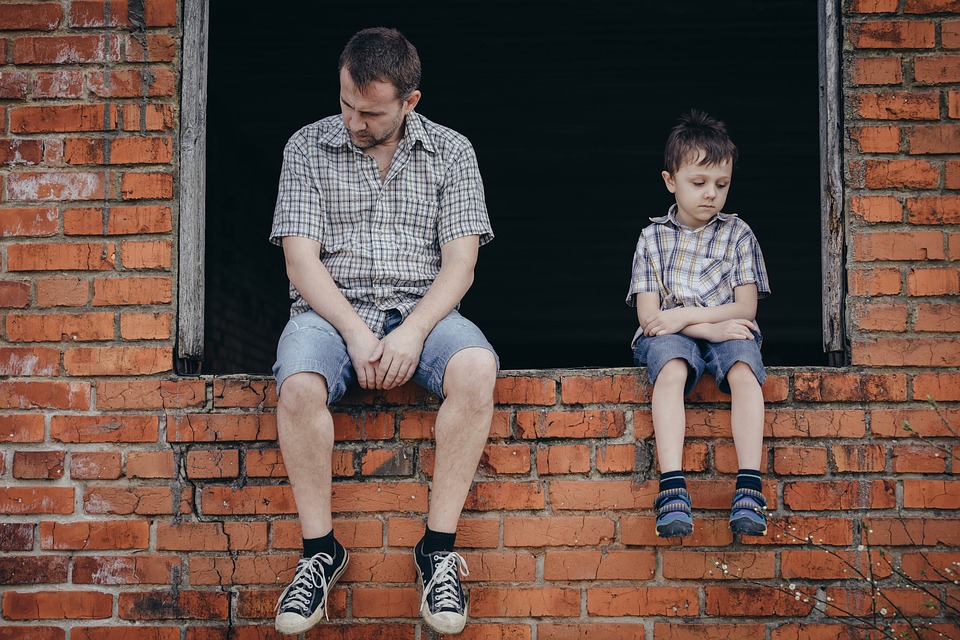
At the East Durham Trust (EDT), the community facility that supports the former pit villages like Horden, and centres such as the Hub House, Chief Executive Malcolm Faller sees this increasing poverty within a wider generational decline of wealth and opportunity.
“Since the industrial revolution, what we’ve had in the British working class is progress year on year, or generation on generation,” Malcolm says. “It’s the kind of thing that ‘you’re not going to go work down the pits son, you’re going to go to grammar school.’
“So, you always looked for progress, even if not in terms of job, in terms of material wealth, your children did better than you, there was a sort of progression.
“What you’re seeing now, after more than 150 years, is the first time ever there is a reverse of that. How do you live with that, that you can’t actually provide for your family?”
For young people moving into the world of employment, there are now statistically higher numbers in work than ever before, as figures this month in the UK hit a national record of just over 32.8 million. Nevertheless, for many people the quality of jobs has been deteriorating.
According to research published by the Living Wage Foundation, one in six workers in the UK, or 5.1 million people are now in low paid and insecure work. The highest rates feature in the North East of England, the West Midlands, and Wales.
This problem of underemployment is most commonly represented by the no obligation of zero hours contracts, or the precarious gig economy which now employs one in ten working age adults in the UK, or 4.7 million people according to the Trade Union Congress (TUC) and the University of Hertfordshire.
These changes to the UK labour market led the Joseph Rowntree Foundation (JRF) to announce in December 2018 that “in-work poverty has been rising even faster than employment,” with 8 million people living in poverty from working families, including four million children.
“In the next generation that’s what we’re up against,” says Malcolm. “A whole generation who won’t be able to give their children what their parents gave them. That’s the first time that that will be reversed, and that’s a catastrophic situation.”
“My kids have flown the nest,” Frank says. “But now they’re on their own, can they manage being on their own?
“It’s only going to get worse in this country, like I said there’ll be riots on again I reckon in the near future, it’s out of control.”
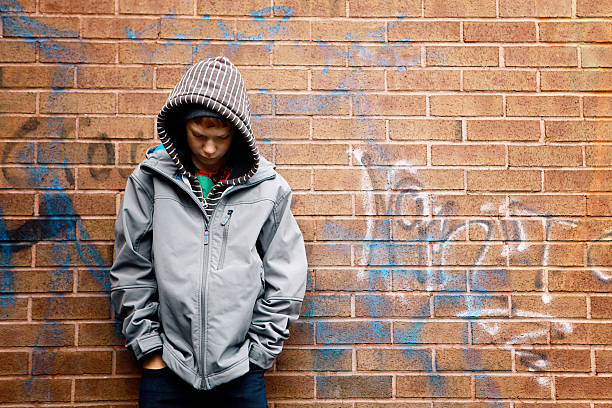
The 2011 riots in Tottenham, London, were initiated by the police shooting of a local man, Mark Duggan. However, the disturbances spread to cities across the UK, from Liverpool and Manchester, to Birmingham and Nottingham.
In the wake of the violence, politicians, academics and journalists highlighted the social exclusion and disenfranchisement that many people and communities felt, as a reason for why such anger was unleashed.
A 2012 collaborative study called Reading the Riots, from The London School of Economics and The Guardian, found that “Undoubtedly, the rioters were a group who felt dislocated from the opportunities they saw as available to others.”
The authors revealed that out of the 270 rioters they interviewed, when asked if they felt “part of British society”, only 51% said yes. As opposed to 92% in the population as a whole.
A sense of alienation from wider society did not cause riots in Horden, but the same grievances have contributed to important national events in recent years.
Assessing the dynamics of the 2016 referendum to leave the European Union, a report commissioned by the JRF found that those who voted to leave were poorer, less educated and more likely to be living on the margins of society.
A key insight of the paper was using data on both individual and area level motivations, resulting in findings stating that “a lack of opportunity across the country led to Brexit.” It reported that leave voters generally live in areas left out of recent economic growth and where the government’s austerity programme has reduced public services.
“Groups in Britain who have been ‘left behind’ by rapid economic change and feel cut adrift from the mainstream consensus were the most likely to support Brexit,” the report said. “These voters face a ‘double whammy’.
“While their lack of qualifications put them at a significant disadvantage in the modern economy, they are also being further marginalised in society by the lack of opportunities faced in their low-skilled communities. This will make it extremely difficult for the left behind to adapt and prosper in future.”
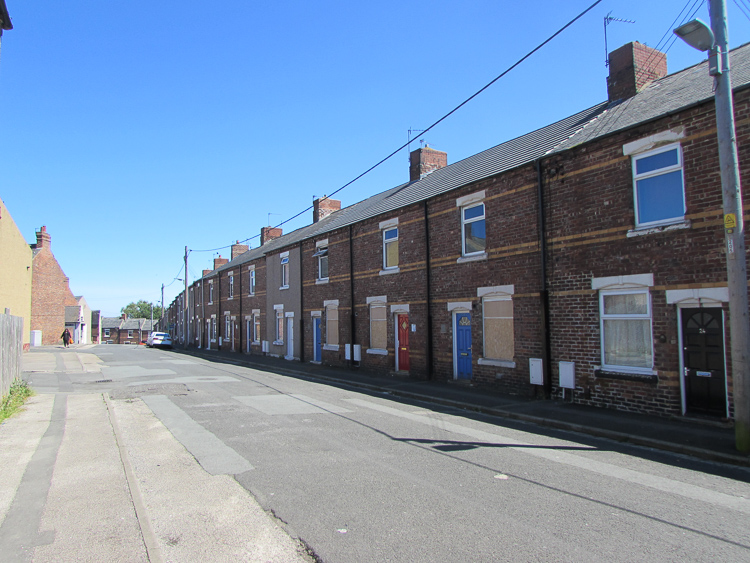
County Durham voted overwhelmingly to leave in June 2016 despite the area receiving considerable funding from the European Union. On the front desk at the EDT, administrator Leaona Clarkson thinks that people just wanted change.
“I think it’s because we’ve been forgotten about for so long by all political parties,” she says. “The ironic thing is this was an area that voted massively to leave, yet the EU provide us so much funding.”
In between 2007 and 2013, the North East received £494 million from the EU, and was set to be given another £595.6 million from 2014 to 2020.
“I would say I see the benefits more than I’ve paid, when I get my tax breakdown. I think I’ve only paid about £14 of my whole earnings last tax year to the EU. I mean £14 pounds in a year, I’d pay that a week to keep somewhere like this (the EDT) running, it’s mental.
“You just have to look around here though, we’ve always been Labour and look at the state of the place, there’s nothing here for anyone anymore, everything’s closing down.”
Leaona said that East Durham has seen a continued social and economic downturn over the past few decades, and it is now becoming noticeable in the next generation of parents.
“The head of year at one of the local schools honestly believes that once kids reach eight years old their parents aren’t able to help them with their homework,” she says.
“Teachers, unfortunately, don’t have the time to teach kids everything they need to know. They need that extra from home, and parents who 100% care will try and help them the best they can but if you don’t know yourself then you just don’t.
“Kids just need to feel happy, kids just need to feel safe, and they’ll learn themselves. At the minute parents don’t feel happy and parents don’t feel safe. It’s a massive problem that we’ve got in our area.”
In this short clip, the group discuss the issues of government policy, in-work poverty and social exclusion.
According to the DWP, 30% of children in the UK live in poverty, with 70% of those coming from working families.
Coming from a disadvantaged background prohibits a child’s ability to engage with education. The Child Poverty Action Group (CPAG) has shown that children who have lived in persistent poverty during their first seven years have cognitive development scores on average 20% below those of children who have never experienced poverty.
This is a factor as children progress through school. In 2015, the CPAG revealed that 33% of children receiving free school meals obtained five or more good GCSEs, compared with 61% of other children.
The Economic and Social Research Council (ESRC) found in a 2012 study, that the main barriers to people moving out of poverty were their educational performance and their difficulty in getting into higher education.
This experience of social exclusion, in which people cannot fully access the opportunities and resources available to the rest of society, damages children’s future chances and limits their potential.
On Seventh Street, Frank lives on the parameters of society. With spending cuts and universal credit, he is without the support he could previously get from the government.
“The numbered streets are a sight in themselves,” says Malcolm, discussing the risks for disadvantaged people like Frank who find themselves with nowhere else to turn.
“There is no safety net. When you look at one of the biggest issues of course, we’re talking about universal credit, but really the mechanisms that go around that with public spending obviously impacts on councils which is what people like him would have depended on.”
The East Durham Trust, like many other similar organisations across the UK, are vital to the people in their area. As an independent community centre, it operates thanks to donations and projects funded by the National Lottery.
“Community centres like ours are all living on the bread line. They’re all sailing very close to the wind in terms of their future,” says Malcolm.
The Equality and Human Rights Commission has forecast that by 2022, 1.5 million more children will fall into poverty in the UK, increasing the rate of child poverty to 41%.
If this prediction is accurate, such an increase in child poverty will have huge repercussions on the future integration of a large part of the population, and in turn the potential of UK society as a whole.
